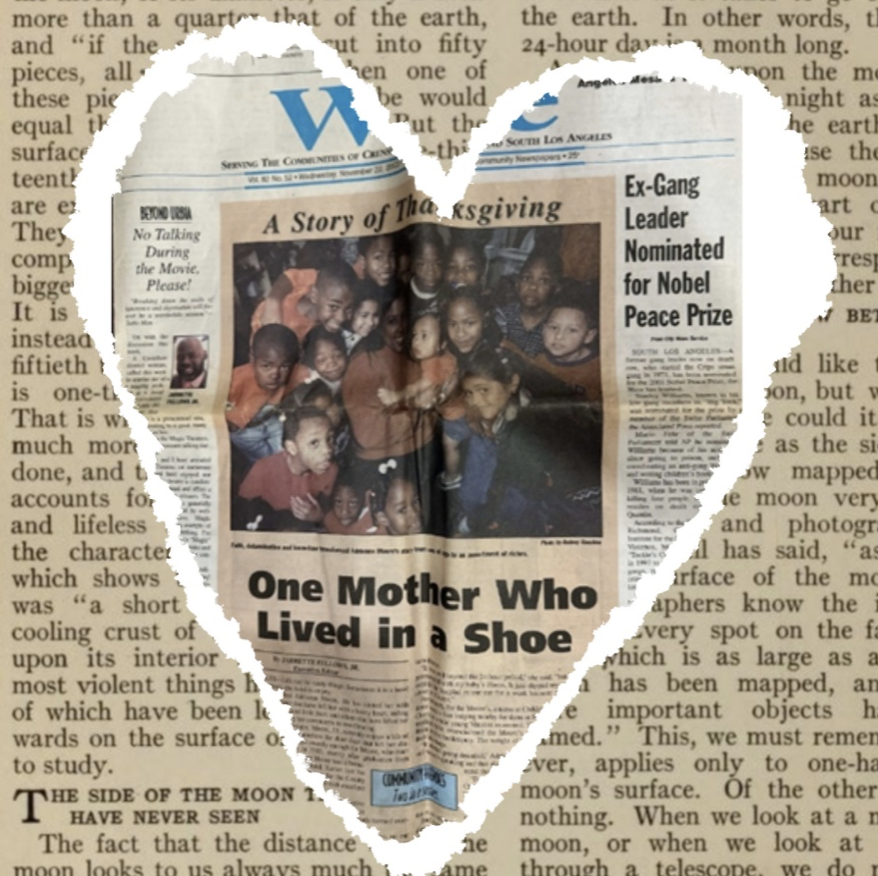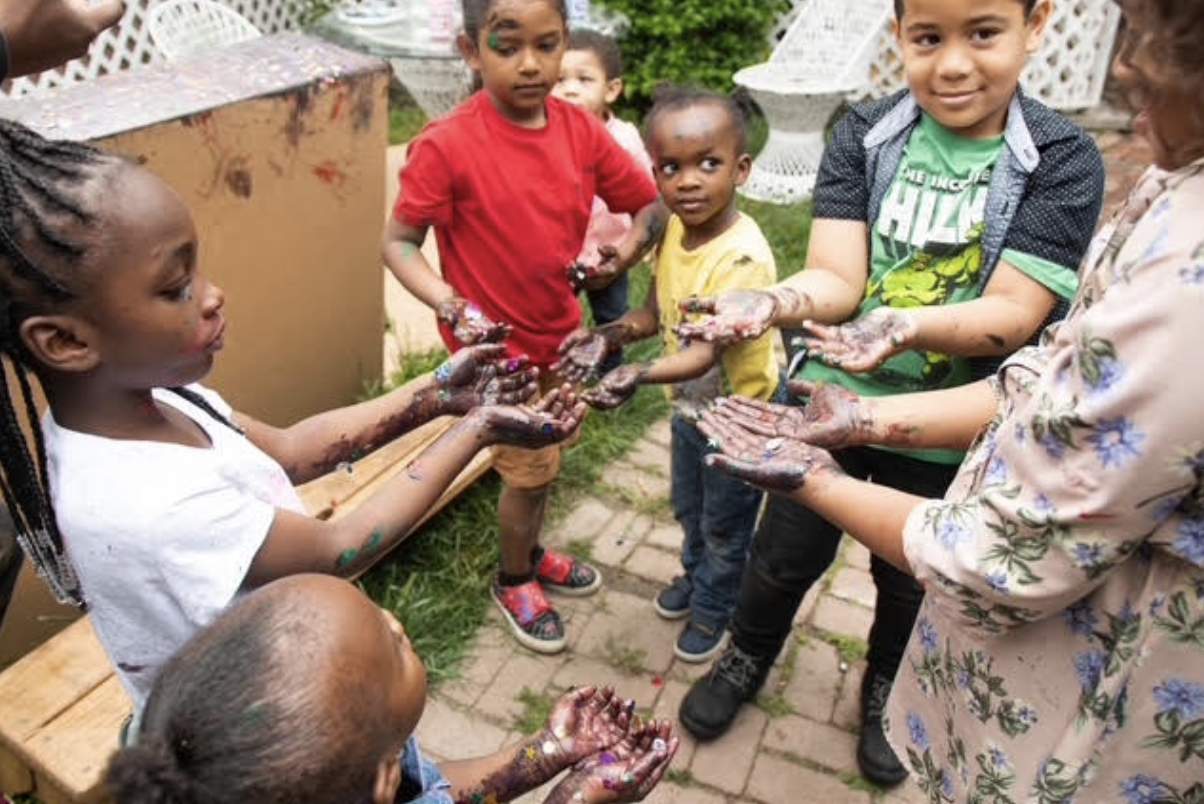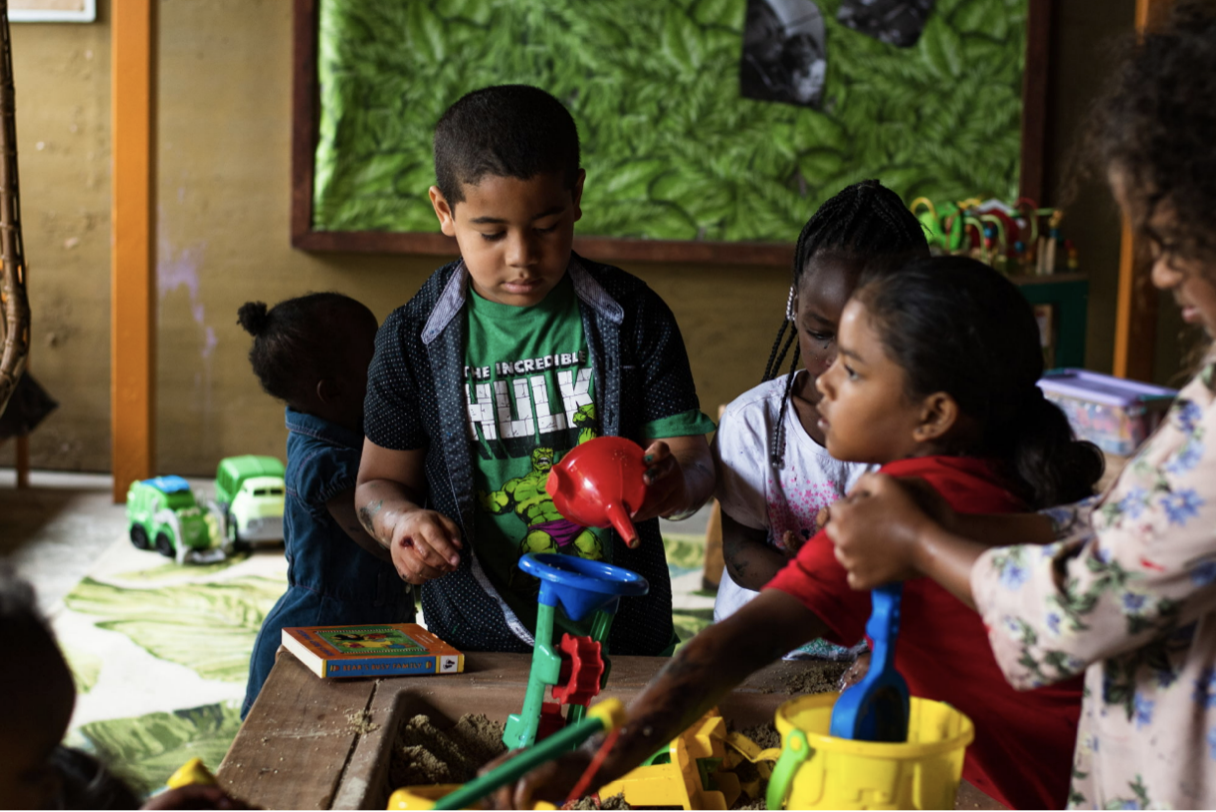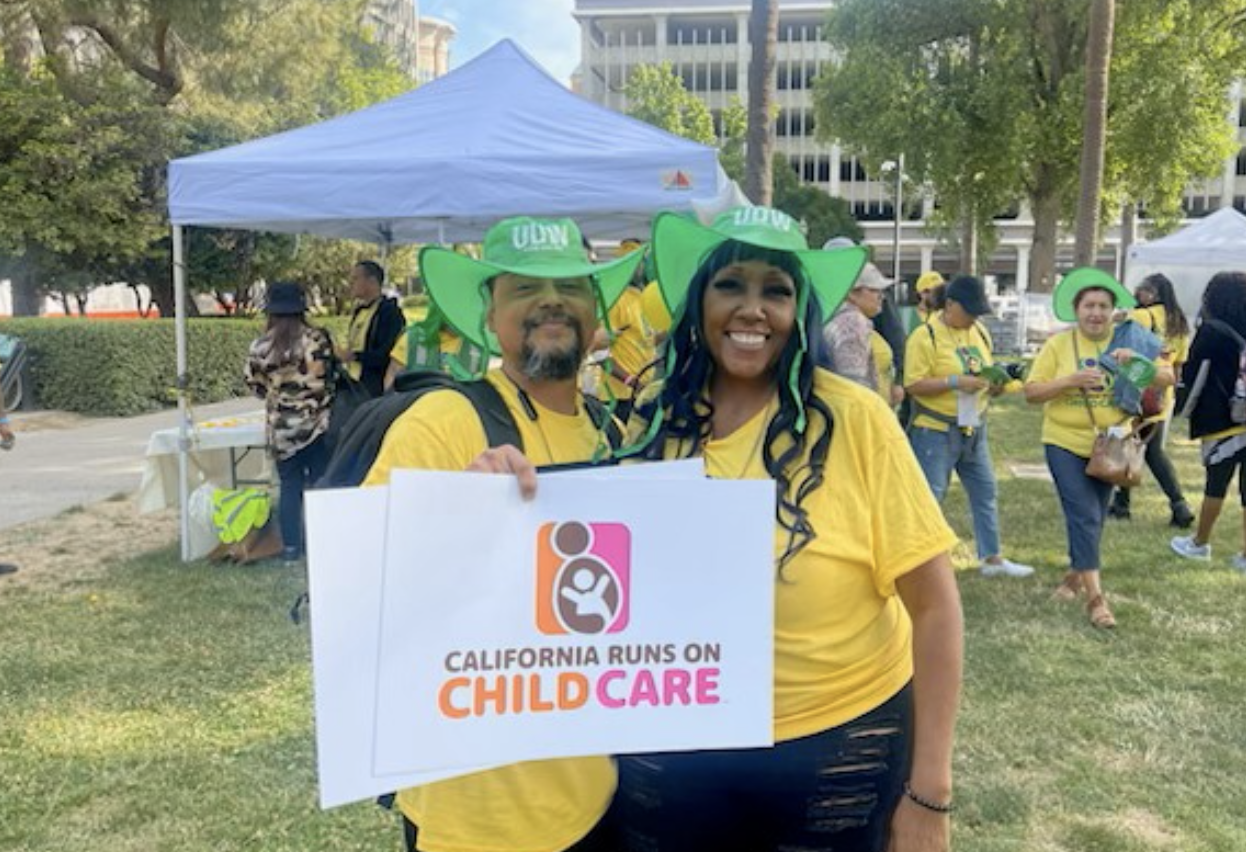Written by Eboni Delaney, Assistant Director of Narrative and Movement Building
“Family child care literally saved my life.”
Adrianne Moore has been a family child care educator in Los Angeles for over 37 years. As the owner of Moore Family Childcare, operating as A Home for Us Family Childcare, she has created a space where children are cared for, families are welcomed, and community is built. Her impact stretches across generations, rooted in resilience and shaped by lived experiences.
When domestic violence forced Adrianne to leave both her home and the child care program she had built, she lost everything familiar, but in the face of crisis, she chose to rebuild—creating a new life and a new program grounded in safety, healing, and purpose.
“I had nothing- no furniture, no materials, no plan. Just my children and a deep belief that I could start again,” she recalls. “I didn’t want just to survive. I wanted to build something meaningful.”
What began as survival became a legacy. Adrianne’s home evolved into a haven of love and safety for the children she nurtured through her work and the ones she welcomed as foster and adoptive family. She supported so many that those around her began calling her “the mother who lived in a shoe,” a reference to the old nursery rhyme that somehow felt playful and true.
“There was always room for one more child,” she laughs. “I never saw it as too much, I saw it as my purpose.”

Family child care gave Adrianne independence, stability, and a sense of direction. Her program grew into a trusted resource in her community, and her dedication never wavered.
Today, she is recognized as one of Crystal Stairs’ longest-serving educators. Her licensed family child care home continues to provide high-quality care to children from a range of backgrounds. Beyond her program, Adrianne mentors aspiring educators through the Los Angeles Mayor’s Early Childhood Education Student Advancement Program (ECE-SAP), helping new providers find their footing in the field.
“So many educators start this work with passion but no guidance. I want them to know they don’t have to do it alone.”

She is also a committed advocate. As a long-time member of SEIU Local 99, Adrianne has participated in legislative negotiations with the California State Legislature, pushing for better pay, protections, and recognition for early educators. Her advocacy is deeply personal—driven by the same determination that once helped her start over.
“Mentorship is a responsibility. If I’ve been through something, I want to make it easier for the next person. If my story can help someone, that’s all that matters.”

Research from the 2024–2025 NAFCC Annual Survey shows that educators who are part of professional associations and supportive networks report stronger outcomes. These educators are more likely to participate in key programs like CACFP and subsidies, engage in policy advocacy, and express a greater intention to continue operating their programs long-term.
This reinforces what many in the field already know: being part of a community matters. When educators have access to peer connection, shared learning, and support from those who truly understand the work, they are more likely to thrive.
Adrianne’s longtime membership with NAFCC reflects her deep belief in the power of community. Whether serving as a mentor or simply showing up for others, she understands that connection is key to sustaining family child care and helping the next generation step forward confidently.
In addition to her work as an educator and advocate, Adrianne holds a master’s degree in Marital and Family Therapy. She was part of the first graduating class in the nation for the African American Family Studies program at Pacific Oaks College, an institution focused on social justice. She also served as the graduation speaker for her cohort—a role she describes as both humbling and empowering.
“That experience taught me how to speak from where I’ve been and speak into what’s possible,” she says.
Adrianne later returned to Pacific Oaks to teach courses in child development and marital family therapy, continuing her commitment to guiding others through both academic and real-world experience.

In August, Adrianne will participate in NAFCC’s second annual Advocacy is Action campaign, continuing her efforts to raise awareness, advocate for policy change, and highlight the vital role of family child care educators.
“Family child care literally saved my life. It gave me my voice,” she reflects. “It gave me a way to support others while healing myself.”
Adrianne’s story powerfully reminds us that Family child care provides stability, purpose, and meaningful support for families and communities.






